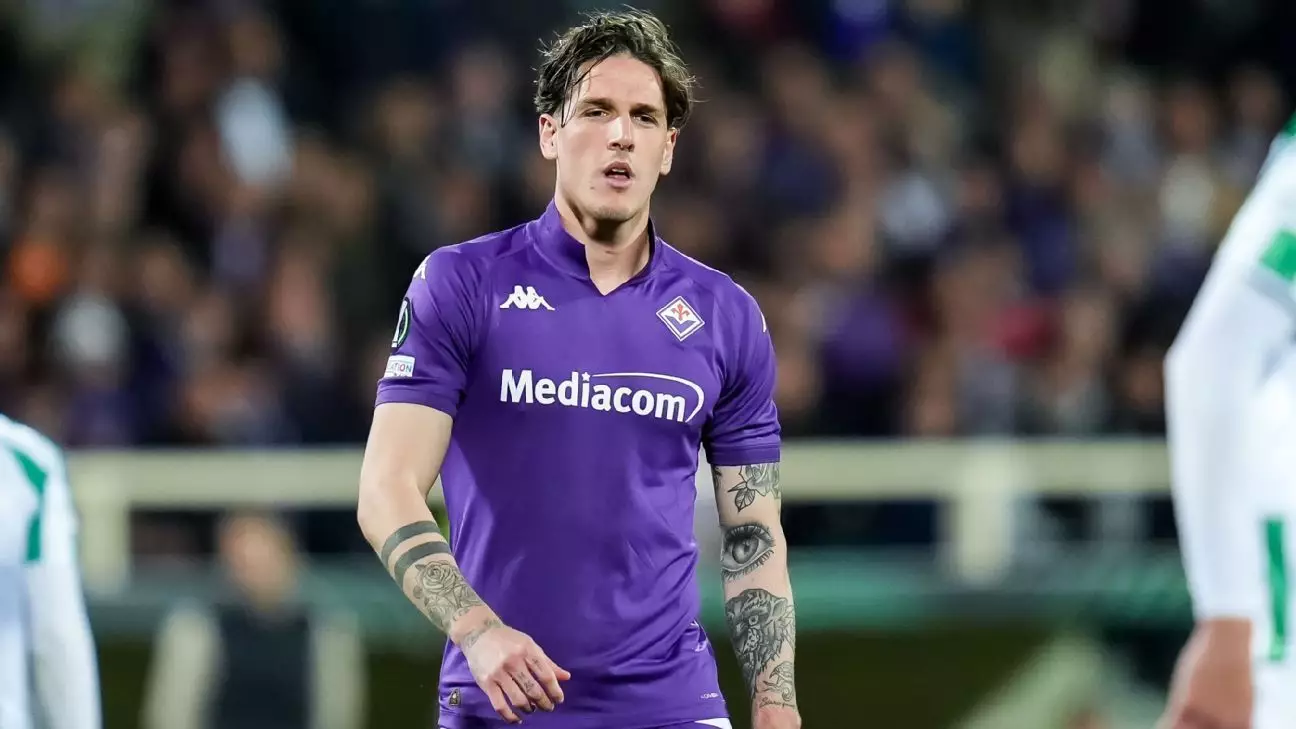In an episode that has sent shockwaves through the realm of Italian football, AS Roma has leveled serious accusations against Fiorentina’s Nicolò Zaniolo. Following a Primavera youth league semifinal match where Fiorentina secured victory over Roma, Zaniolo allegedly crossed a line, entering the AS Roma locker room without permission and allegedly engaging in violent actions that led to hospitalization of two youth players. Such behavior, if proven true, raises significant concerns about sportsmanship and personal conduct in professional athletics.
Roma’s statements regarding Zaniolo’s purported actions paint a grim picture; they describe him as visibly intoxicated and engaging in what they termed “violent and unjustifiable behavior.” The detailed account includes allegations of urination in the locker room facilities and physical aggression towards players who were recovering from injuries, which can lead to serious ramifications not just for Zaniolo but for the broader sporting community as well.
Denial and Backlash: Zaniolo’s Perspective
In stark contrast, Zaniolo took to social media to address the escalating situation, insisting that the media portrayal of events is exaggerated and misleading. He acknowledges a moment of anger provoked by verbal confrontation but denies that any physical confrontation occurred. Zaniolo’s insistence on rectifying the narrative highlights the often murky waters athletes must navigate between personal accountability and media sensationalism.
Zaniolo’s response further complicates the narrative, blending themes of regret with a plea for understanding from the general public. He admits to losing his temper, which is an intriguing angle. It raises essential questions about emotional regulation in high-stress environments like professional sports, juxtaposed against the pressures of public scrutiny that athletes often endure.
The Consequences of Actions: A Reflection on Accountability
This incident underscores a pressing concern within athletics: the potential for detrimental behavior to overshadow talent and achievement. Future implications for Zaniolo might extend beyond immediate consequences; he has navigated a tumultuous career already marked by injuries and the challenges of maintaining elite performance levels. The repercussions of his actions could further stifle his prospects in a field that is quick to judge and slow to forgive.
Additionally, the injury to the two youth players following the confrontation reminds us that physical altercations in sports can have real and lasting effects on health and career longevity. With Almaviva and Litti both requiring hospitalization, the seriousness of the incident transcends the personal—it raises discussions about safety, respect, and the overall culture in football and sports at large. The Italian Football Federation’s decision to launch an investigation will be crucial in ensuring that accountability is enforced.
The Broader Implications: A Call for Reform
As sports organizations around the world grapple with player conduct, it is imperative for leagues, teams, and governing bodies to step back and reflect on their frameworks for addressing player behavior. This incident serves as a stark reminder of the need for clearer policies surrounding sportsmanship, conduct, and disciplinary measures.
Equally important is the role of mental health support for athletes. Zaniolo, once heralded as one of Italy’s next big stars, faced immense pressure throughout his career, particularly given his public struggles with injuries. This scenario spotlights the necessity for adequate mental health resources within sports organizations, allowing athletes to navigate their emotions more constructively rather than resorting to aggression in challenging situations.
As the investigation unfolds, the football community’s response to Zaniolo’s case could lead to more robust strategies aimed at fostering a culture of respect and professionalism on and off the field.
A movement toward an environment where players can express frustrations without crossing into violence is not only aspirational but necessary for the integrity of sports. How the Italian football community chooses to handle this crisis will speak volumes about their commitment to evolving and fostering a safer, more respectful atmosphere for everyone involved.

